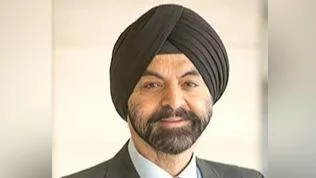Azerbaijan Rapid Technical Assistance Facility (AZTAF) is a technical assistance program for the Republic of Azerbaijan, financed by the European Union and implemented by the World Bank. The AZTAF program aligns with Azerbaijan’s National Priorities and goals of its Socio-economic Development Strategy for 2022-2026.
The AZTAF program builds on the World Bank Group’s ongoing engagements in Azerbaijan in areas such as inclusive growth, public and corporate governance, green growth, human capital development, and social inclusion. It aims to enhance energy efficiency-enabling environments, support the establishment of a national framework for water security, develop high-speed digital connectivity, strengthen corporate governance of state-owned enterprises (SOEs), enhance integrity and accountability in public administration, expand innovation in rural and local economic development strategies and programs, address gender-based occupational segregation in the labor market, build essential skills among women-run small and micro-entrepreneurs in rural areas, and improve the disability assessment system in Azerbaijan.
AZTAF finances nine technical assistance activities:
1. **Energy Efficiency and Climate**: This component supports operationalizing an Energy Efficiency (EE) Fund, strengthening EE policy environments, identifying investment opportunities for EE interventions in various buildings sectors, and developing a National Renovation Program for private and public buildings to improve energy performance.
2. **Improving Water Security**: This technical assistance focuses on generating priority knowledge products to modernize water sector institutions and prioritize investments. Activities include managing water resources, irrigation systems, water supply, and sanitation.
3. **High-Speed Digital Connectivity**: The goal is to develop foundations for implementing government visions for digital transformation as a driver of sustainable growth. It also includes preparing recommendations for a time-bound digital transformation strategy.
4. **SOE Corporate Governance Reform**: This TA assesses selected SOEs' status regarding reform implementation challenges. It aims to enhance government capacity for SOE reporting, accountability standards enforcement, procurement functions improvement, financial relations organization with the state.
5. **Strengthening Public Procurement Systems**: This component enhances public administration's integrity by improving transparency through strategic procurement system evaluations and e-government procurement readiness assessments.
6. **Smart Villages Program Preparation**: Activities under this program aim at promoting digital technology use to improve rural economic opportunities while fostering entrepreneurial culture reducing urban-rural disparities through analytical studies and capacity-building initiatives.
7. **Addressing Gender-Based Occupational Segregation**: These activities contribute to addressing gender-based occupational segregation by encouraging females into male-dominated fields of education/employment while working with selected SOEs to identify/address gender gaps within their workforce.
8. **Supporting Women Entrepreneurs**: Specific activities include needs assessments of women entrepreneurs across rural communities followed by training programs based on these assessments aimed at building essential business skills linking them with relevant financial service providers.
9. **Improving Disability Assessment System**: Objectives include comprehensive assessments of existing disability systems/policies/programs alongside building governmental capacities piloting new assessment methods using psychometric instruments like WHODAS developed by WHO providing standardized tools measuring functioning across cultures/assessment purposes both clinical/population levels.
Launched with a total budget of EUR 5.25 million funded by EU implemented over three years including series programmatic/on-demand activities aligned four priority areas EU-Azerbaijan Partnership Priorities:
- Strengthening institutions/good governance
- Enhancing economic development/market opportunities
- Boosting connectivity/energy efficiency/environment/climate action
- Allowing mobility/people-to-people contacts
The goal is providing advisory/analytical support/capacity building Government Azerbaijan line "Azerbaijan 2030 National Priorities". The EU-World Bank Facility provides advisory support focusing enhancing social inclusion/connectivity spurring economic reforms strengthening public sector governance facilitating effective post-COVID recovery.
___

